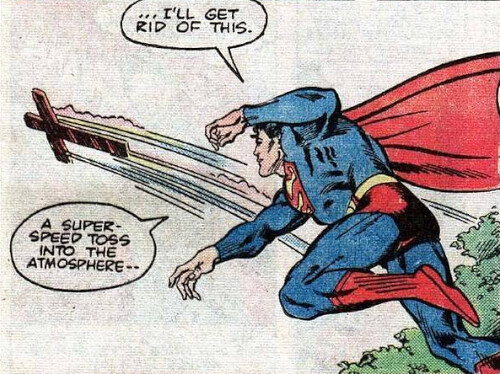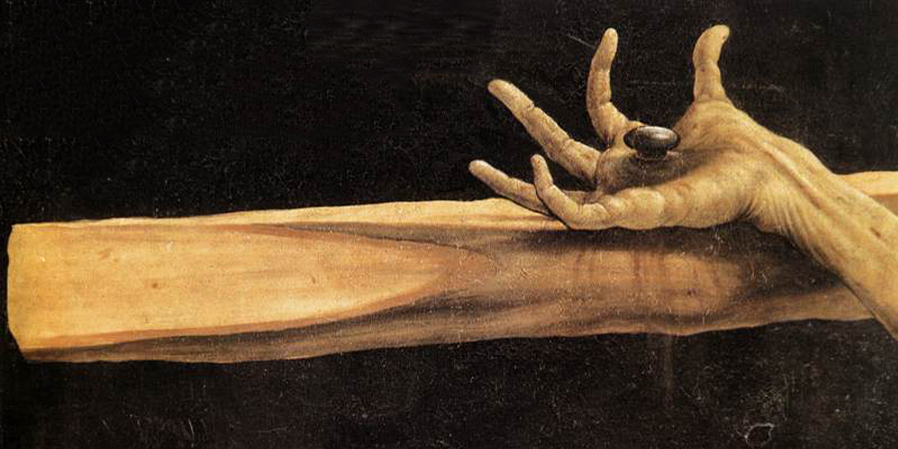When the nail went through his wrist, the blood spattered out several feet away. By that time, the flagellum whips had already caused lethal damage, turning his body into a mess of blood and torn flesh only an hour before. His genitalia was a punchline of crude jokes to the daily commuters and traveling salesmen as he helplessly hung from above. Adorned with a crown of thorns that burrowed into his scalp, he was both a spectacle of horror and a complete mockery of human dignity. For those who followed Jesus throughout his ministry, it’s safe to say that none of them had seen this coming.
Endings are important. Imagine Shawshank Redemption where Andy Dufresne, after crawling through tunnels of sewage in an elaborate escape plan, is not greeted by a river of redemption, but, instead, German shepherds and searchlights. Imagine Lord of the Rings where Frodo decides to join forces with Sauron. The ending decides whether a story is hopeful or nihilistic, humorous or tragic. Our opinion on whether a story is any good depends on how it resolves. If we love a movie but hate the ending there is a good chance we won’t ever watch it again. “All’s well that ends well,” as the bard would say.
In his podcast Revisionist History, Malcolm Gladwell once talked about his fixation with endings. Gladwell will read a thriller and stop five pages before the end because he’s concerned that the author won’t be able to pull it off. After carefully studying the meaning of endings, he came to a conclusion on what makes a story successful.
For a story to be any good, in Gladwell’s opinion, one thing is required: the ending must betray the expectations of its listeners.
This is the key difference between a story and an anecdote. For Gladwell, an anecdote is a narrative that conforms to the listener’s expectations. The example he gives is someone saying, “The craziest thing happened to me last night. I found a $100 bill on the street.” The situation is completely cut and dry. People may cheer in response, but the story dies just as soon as it was born. What if, however, someone found a $100 bill on the street, gave it to a homeless person and the homeless person responded by saying, “I don’t want your f-ing money!” Suddenly, the tale goes from a quick sketch to a thrilling adventure. It is precisely in betraying the audience’s expectations that the story becomes more than just a cheap trick, but an experience.
The key word, here, is “betrayal,” one that is all too familiar during Holy Week. The word derives from the Latin trādere which means “to hand over,” an echo of the one who handed Jesus over to the authorities to be killed. Just as the name Benedict Arnold is synonymous with the word “traitor,” the name Judas runs parallel to the word “betrayer.” The Gospel of John can hardly mention the man’s name without labeling him with the crime he committed: “Judas, who betrayed him.”
And yet, Judas’ deception may not be the only act of betrayal in the gospels. Recalling Malcolm Gladwell’s key ingredient for a good story, there is another culprit on Good Friday. On the Cross, God himself betrays our expectations of how the story ends.

The stories of Jesus’ birth had promoted him as one who would finally redeem Israel from the hand of its oppressors. He had been welcomed with a series of victorious march songs, all breathing the air of military conquest. Simeon pronounced him as a light for glory to the people of Israel. Mary had cast him as one that would bring down the powerful from their thrones. Long before he was even born, he was called a righteous and victorious king. Once he begins his ministry, the anticipation continues to escalate. A divine voice from heaven called Jesus a beloved son. Loads of crowds surrounded him while he healed invalids and gave sight to the blind. He appeared alongside Moses and Elijah in transfigured glory. He was called the Son of God, the King of Israel, the Christ. For the most part, the story followed a predictable progression from strength to strength — until the very final act.
At least three times in each gospel, Jesus tells his disciples that he will suffer and be killed, but Peter and company refuse to believe it. They couldn’t help but cling to an expectation that maybe things will be different this time around. Surely, good will triumph over evil, surely pain and suffering will be narrowly avoided. Even during Jesus’ trial, there’s the hope that twelve legions of angels would be summoned down to save the day. Even as the noose is closing around his neck, they expect that the hero doesn’t die in this one.
Until he does, of course. The gospel story ends not with the joyful procession of a victorious king, but complete and utter shock. His crown was not made of gold, but thorns. He did not sit on a gilded throne, adorned with royal purple, but hung naked on a cross. Everyone is dumbfounded as the final scene fades to black and we are forced to face an ending that none of us would have chosen: “Then he bowed his head and gave up his spirit.”
As Jesus breathes his last, even we, the reader, have been betrayed all over again. We may know the story by heart, but somehow it’s still impossible to believe. How could the savior of the world fail to even save himself?

The surprise is not only that God dies, but that he dies in such a torturous and grotesque fashion. Any of the onlookers of the crucifixion would have been aghast that the one who raised the dead and cured leprosy was somehow subject to a Roman henchman, a peon of the power system. The soldiers may have represented authority, but only at the smallest levels. How could the King of the Jews permit himself to die the shameful death of a rebel slave?
The sufferings of God parallel our own unexpected sufferings, of course. We expect our lives to go perfectly, our desires to be fulfilled, our bodies to never age. Life, it turns out, betrays almost all of our expectations. Despite our deep-rooted denial and love of distractions, each of our lives will eventually end in death. For some odd reason, it’s never how we thought life was going to turn out.
It is tempting to treat Good Friday as a pit stop on the longer journey to Easter Sunday. In lieu of the lingering discomfort of the crucifixion, we prefer to peek backstage to get a glimpse of the resurrection waiting behind the curtain. But Jesus’ death is not a mere patch job on the human predicament, it is an end to what we expected life to be all about. As Martin Luther once wrote, “It is the essence of God to first destroy what is in us before he bestows on us His gifts.”
And so Good Friday is an end in itself. The death of Jesus is the end of our estrangement from God. It is the end of our presumptions about what life should be. By his betrayal of our expectations, Jesus becomes for us far more than we could have imagined. On Good Friday, the hero we hoped for became the failure we desperately needed. The king we didn’t want became the savior we couldn’t live without.

COMMENTS
3 responses to “The Hero Dies in This One”
Leave a Reply













Stunning. Thank you, Sam
But, we wouldn’t even know about the Passion if there had been no Resurrection. We see/know, and interpret, the Passion from this side of Christ’s Resurrection. Without that perspective, there is no hope in Jesus’ Crucifixion, nor would there be any memory of it; it would be lost in the ocean of crucifixion and suffering that has surrounded us since the beginning of time.
[…] The Hero Dies in This One, by Sam Bush […]